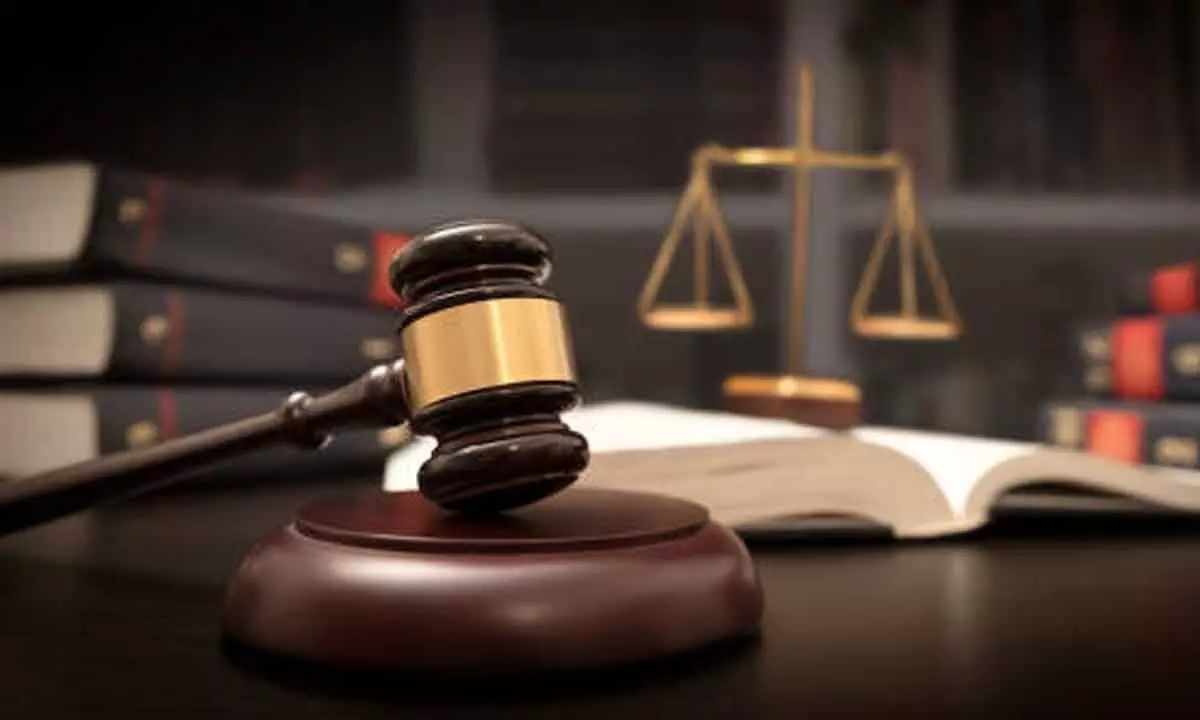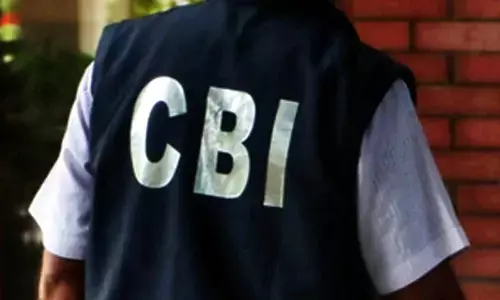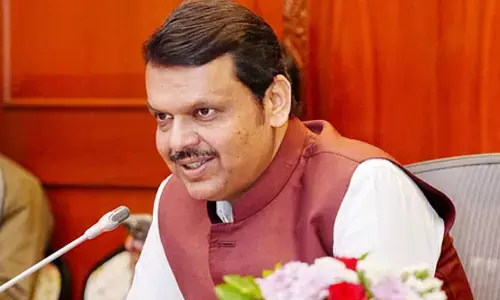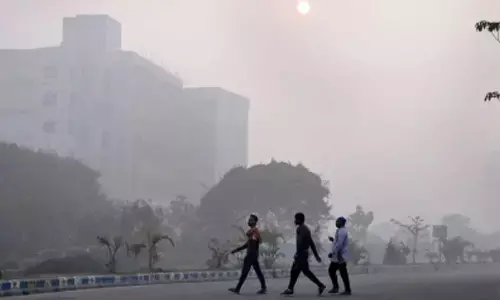New CJI Begins His 74-Ball Innings Well With Sixers!

The flamboyant new Chief Justice of India, U U Lalit has begun his limited overs inning in the apex court with gusto.
The flamboyant new Chief Justice of India, U U Lalit has begun his limited overs inning in the apex court with gusto. Without mincing words, he has revealed his plan for the entire tenure of 74 days after which he will retire on superannuation. Accordingly, the CJI has decided to resolve some highly contentious issues with wider social and political ramifications.
After assuming office on August 27, CJI Lalit in just next 3 days put a full stop to some long pending cases like demolition of Babri structure and communal riots in the aftermath of Godhra incident etc. Now he is expected to focus on other important cases such as reservation for Economically Weaker Sections (EWS), reservation for Muslims, Nikah – Hasan, Halaala and polygamy among Muslims. He has already initiated action to streamline the filing and posting of the cases in the Supreme Court which will go a long way in improving the working of the top judiciary.
Though the critics of the new CJI allege that his approach of speedily going ahead is not without imminent dangers. As the traffic police declares on the sites along the highways and thorough fares of urban areas that speed thrills; but it may also kill, the experiment of accelerating the case-disposal is worth undertaking with due caution. If the heavy backlog of cases has to be cleared, the legislature, executive and judiciary, all three will have to put concerted efforts and address this very sensitive issue with all seriousness.
To achieve success in his bold initiative, the CJI will have to enlist the concurrence and co-operation of other two Constitutional arms and introduce revolutionary changes in Civil Procedure Code as well as the Criminal Procedure Code. When our prisons are over flooded with jail inmates, mostly the undertrial prisoners, there is no fun in sticking to the colonial laws and procedures which have been worn out by now. Therefore, in a classic bid to overhaul the procedural law, for example, the criminal cases involving offences up to 3 years of imprisonment, 3 to 7 years of imprisonment and life imprisonment and death sentence should be differently treated by the courts so as to ensure the speedy time bound trial. Keeping this in view, the old cases involving minor offences up to 3 years may be closed if they are pending since more than 5 years. Similarly, the cases which attract the jail term up to 7 years and pending since 10 years may also be closed. The remaining cases of very serious nature attracting the sentence of life imprisonment or death should be tried on day- to- day basis and judgment pronounced thereafter within a period not exceeding one month.Such a new approach will be, indeed in tune with the spirit of liberty, equality and fair play enshrined in the Constitution.
Still much more needs to be done at the levels of High Court and subordinate courts. Corruption, certainly not the one perceived by the senior advocate Prashant Bhushan in his 'ifs' and 'buts' loaded apology to the apex court recently, is the major issue at all levels of the judiciary certainly. The statistical law of inertia holds good in the matter of corruption. Higher the court, higher are the stakes involved and hence, higher are the amounts of bribe. This is the measuring rod for determination of financial corruption, which is the only form known to a common man unlike some 'smarty' lawyers of the higher courts.
Here comes in question the role of the anti-corruption agencies such as the CBI and ACB. The statistics of cases booked by these agencies against the corrupt elements in judiciary, are to say the least, dismal. The reason: you don't touch me, I too, won't touch you ! Certainly, the Swachcha judiciary should be the new addition to the bag of Swachchhata Abhiyan .
MINIMUM PUNISHMENT FOR MURDER IS LIFE TERM: SC
The Supreme Court has reiterated that as per Section 302 of the IPC, the minimum punishment for the offence of murder is life imprisonment.
In a verdict pronounced on September 2, in a case titled : State of Madhya Pradesh Vs. Nandu @ Nandua, a division bench comprising Justice M R Shah and Justice Krishna Murari held that the punishment for murder under section 302 IPC is life imprisonment for life or death and fine. Commenting that the High Court has committed a very serious error in reducing the sentence to already undergone period of seven years and ten months, the Bench held that the approach of the High Court was contrary to Section 302 and unsustainable.
J&K-HC ON MEDICAL NEGLIGENCE
In a case titled : Farooq Ahmad Bhat Vs. Syed Basharat Saleem, the Jammu and Kasmir and Ladakh High Court on September 2 ruled that before prosecuting medical professionals for the offence of criminal negligence, a criminal court should obtain opinion of the medical expert and if from such opinion, a prima facie case of criminal negligence is made out against a medical professional, only then the machinery of criminal law should be set into motion.
Dealing with a petition challenging registration of FIR and praying for quashing the same, the bench of Justice Sanjay Dhar quoted the observations made by the apex court in Jacob Mathew Vs. State of Punjab wherein it was observed :
"A private complaint may not be entertained unless the complainant has produced prima facie evidence before the court in the form of a credible opinion given by another competent doctor to support the charge of rashness or negligence on the part of the accused doctor."
Justice Dhar added: "Courts are not experts in the medical science and, as such, they cannot substitute their own views over that of the specialists in medical science."
WHO CAN INCLUDE A CASTE IN SC LIST : ALLAHABAD HC ANSWERS
In an important judgment, a bench of the Allahabad High Court comprising the Chief Justice Rajesh Bindal and Justice J.J Munir has unequivocally held that according to Article 341 of the Constitution of India, including any caste or group in the list of Schedule Caste in a State can be done only by the Parliament.
The court while allowing the PIL writ petition filed by Dr B R Ambedkar Granthalaya Evam Jan Kalyan Vs State of Uttar Pradesh and others as well as WP filed by Gorakh Prasad against the State of U P and others quashed the orders of the Uttar Pradesh government which recognised or acknowledged some 17 castes or sub-castes as Scheduled Castes. Among the castes/sub-castes which were recognised by the UP government are, Majhwar, Kahar, Kashyap, Kevat, Mallah, Nishad, Kumhar, Prajapati, Dheevar, Bind, Bhar, Rajbhar, Dhiman, Batham, Turha, Godia, Manhi and Machua.
The court also relied upon the judgment of the Supreme Court in State of Maharashtra Vs. Keshao Vishwanath Sonone in which it was held that the power to add, amend or exclude to the SC List was vested in the parliament and the courts should desist from extending their jurisdiction in this matter.















